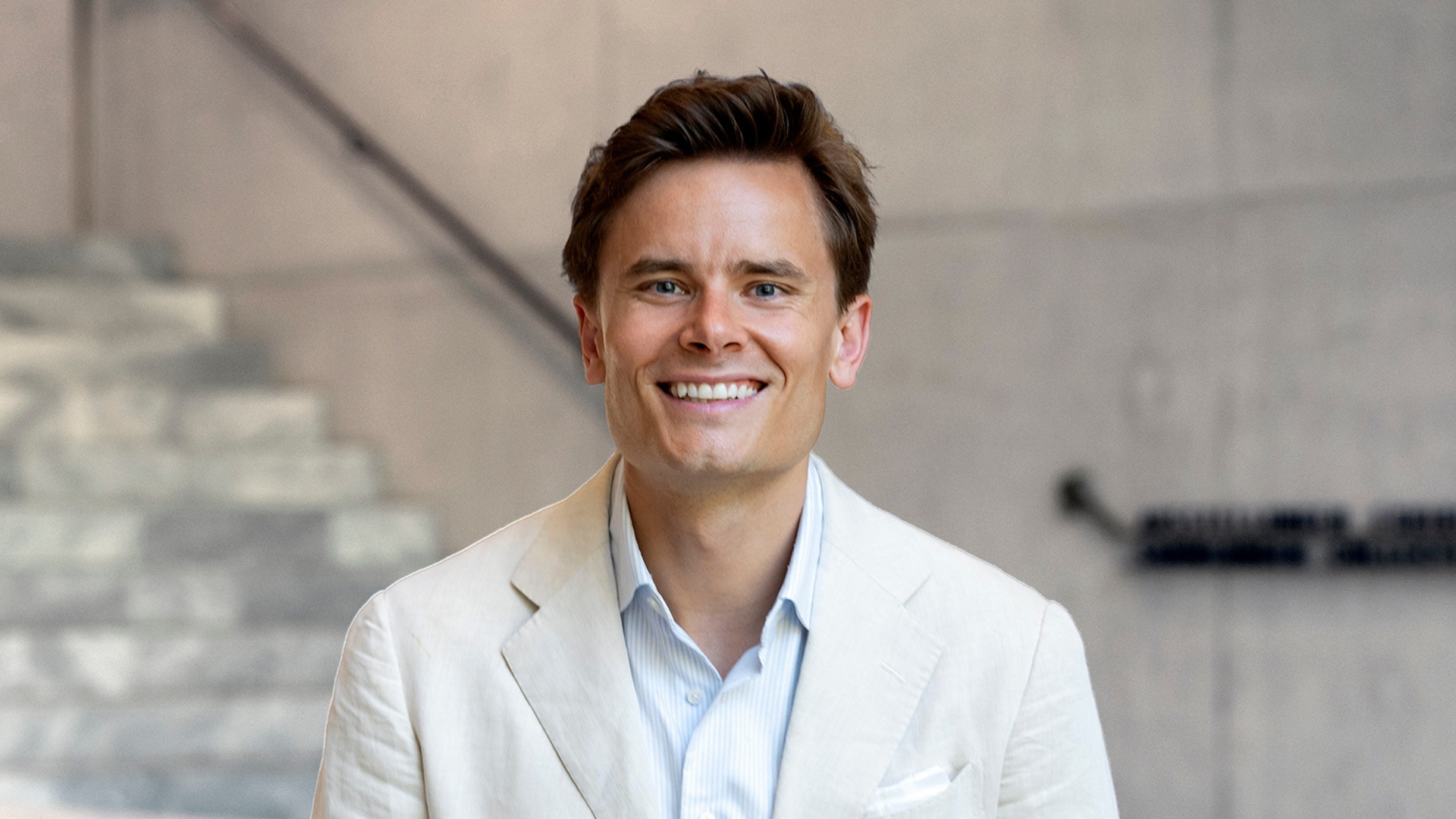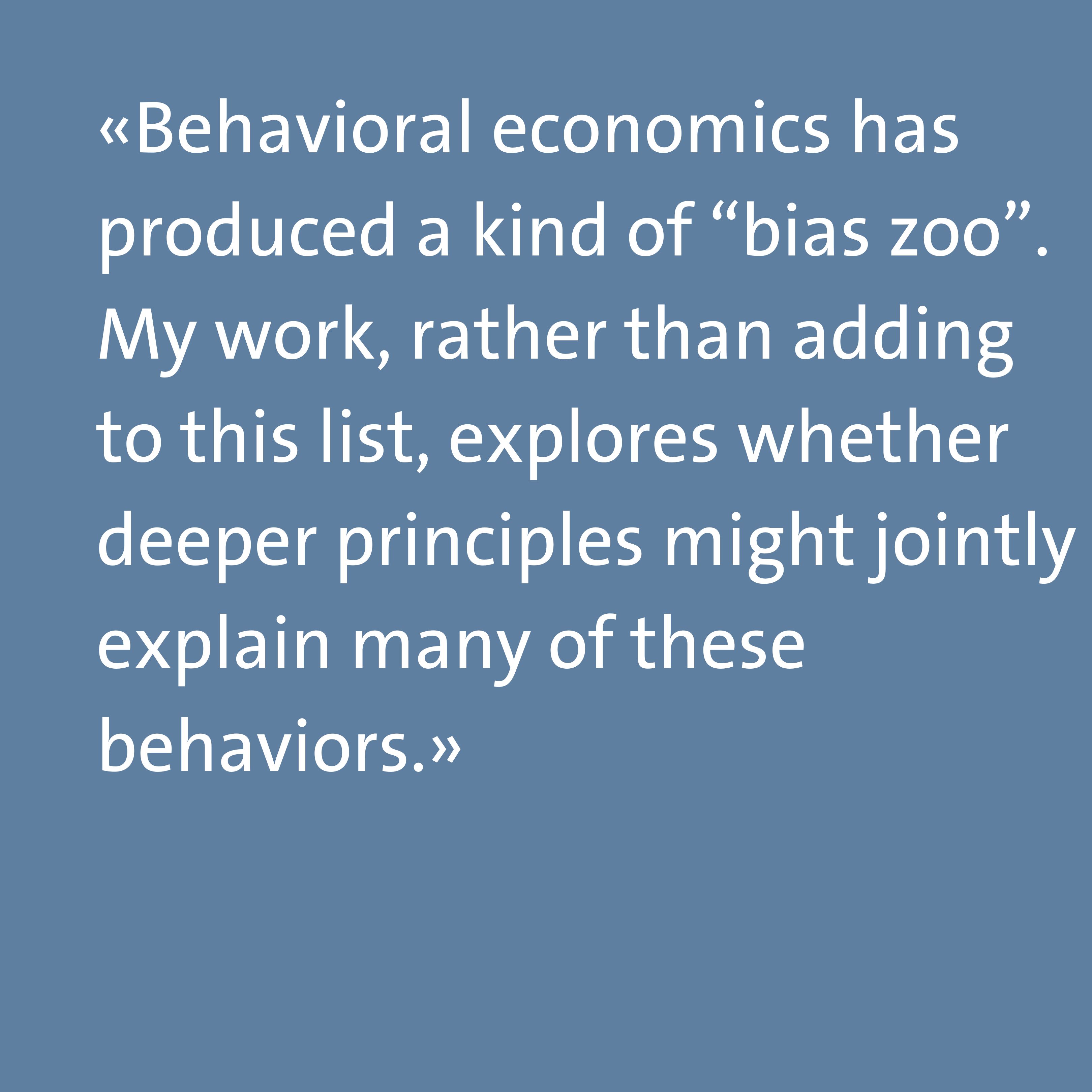Five Questions for Thomas Graeber
Thomas Graeber joined our Department as the new NOMIS Associate Professor of Cognitive and Neuroeconomics.


What are the topics you are currently working on?
Behavioral economics has produced a kind of “bias zoo”. By that I mean we’ve found hundreds of ways people make decisions that aren’t perfectly rational, and most of them are studied separately. My work, rather than adding to this list, explores whether deeper principles might jointly explain many of these behaviors. One recurring puzzle across domains is that people’s decisions tend to be much less responsive to changes in key parameters than economic models predict. For example, valuations of lotteries don’t shift nearly as much as theory suggests when probabilities change from 60% to 70% to 80%. Similarly, people's willingness to pay now for a delayed payment changes remarkably little whether the delay is three, four, or five years. Traditionally, these and many similar-looking patterns have been treated as separate phenomena with distinct explanations. In a recent paper, we show that in each of these decisions, most people are uncertain about what their best choice really is. Think of how much you’re willing to pay for a lottery ticket that pays 1,000 francs with a 70% chance. Maybe you say 600 francs, but are you sure it’s exactly 600? Not 550, or 620? We argue that this kind of “cognitive” uncertainty can help explain why people’s choices are often less sensitive to changes in probabilities, delays, and other decision parameters. If you’re unsure what’s best, you end up treating nearby situations too much alike.
What is the main finding of this work?
Across more than 30 experimental settings – spanning decisions under risk, over time, in prosocial contexts, financial choices, belief formation, forecasting, strategic games, and many others – we find that cognitive uncertainty about what’s best strongly predicts how responsive people are to key decision parameters. The main takeaway is that many seemingly different behaviors may be re-interpreted through a common lens: how people systematically respond to the feeling of being unsure of the right course of action.
Is there another important specific work of yours that you would like to mention?
Alongside the pattern of people being less responsive than standard theory predicts to key decision parameters, there is a broader pattern of responsiveness to specific factors that the model of homo economicus would not predict. In particular, extensive evidence highlights the role of comparison points such as goals, anchors, reference points, norms, expectations, and social comparisons. In ongoing work, we explore the idea that reliance on these comparison points may, similarly, partly reflect uncertainty about what is optimal. This perspective also helps explain the mixed evidence on when comparison points lead decisions to shift upward versus downward.

You have recently joined UZH, what motivated you to come to Zurich?
UZH has an exceptional group of people working in my field. I strongly believe that research is a collective endeavor: it is not produced alone in a room, but through constant interaction with colleagues and students. Alongside the people, the research infrastructure is also crucial for work like mine. Few institutions worldwide match the infrastructure of leading U.S. universities, UZH is definitely one of them.
Who is the inspiration behind your work?
I wouldn’t say I had a single guiding inspiration from the start, but over time I’ve come to appreciate how much of what I work on resonates with ideas that Herbert Simon explored decades ago. For example, most recently, when I began working on how people decompose complex economic problems, I realized how directly it builds on Simon’s reflections about cognition and decomposability.